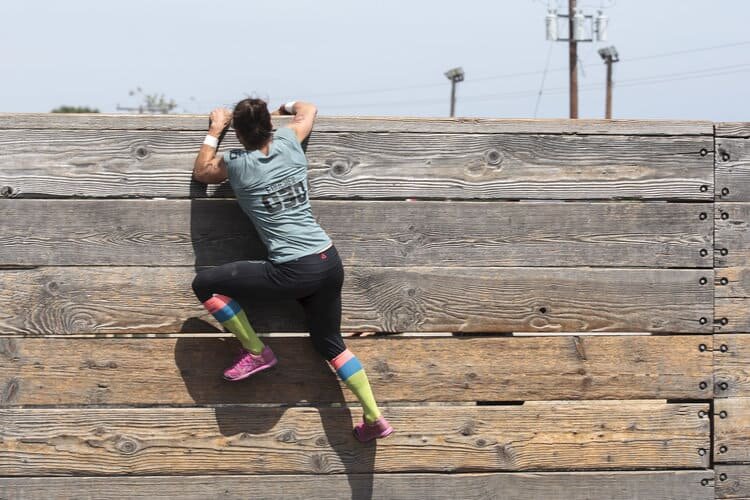The holidays are a time for gratitude, celebrations, family, friends, and, of course, gifts. Bombarded with advertising it’s easy to lose sight of what really matters and overlook the art of thoughtful gift giving.
As we consider the process of gift giving, it's possible to swap the stress and anxiety of purchasing the perfect present for the true pleasure of generosity. Here's 13 ways to make your gifting easier this holiday season.
1. Give to Yourself First
It’s a busy time. How can you possibly give with generosity to others when you fail to nurture your own needs? When you become depleted, you are less present and being less present you cannot mindfully give to others. The best gift you can give your loved ones is the gift of your healthiest and most nurtured self.
2. Plan Ahead
Carefully think through your gift choices - it doesn't need to take up a lot of time, it just need to be considered . Consider these questions to dig into the meaning behind your giving:
How do you measure the value of a gift?
What do you hope to convey to your loved ones?
How can your values be transformed into holiday gifts?
How do you want to share your energy with people you care about?
3. Budget
While it's likely that you’ll end up purchasing at least some gifts, it's important that you don’t spend more than you have. Maxing out your credit cards may let you afford more purchased gifts, but the stress, anxiety, and depression that comes with debt isn’t worth it. Gifts don’t need to be expensive to be meaningful. Your favourite gifts to give may be ones you make. Homemade Rocky Road, your favourite biscuits or a poem that you love (or write) can be a beautiful gesture.
4. Give Experiences
Offering someone your time and expertise can be a truly thoughtful gift and also deepen your connection. Material items provide instant gratification but fade quickly. The memories of sharing an experience together or learning something new can last a lifetime. You could offer to teach them how to:
Cook
Play music
Paint
Take photographs
Practice yoga/meditation
Fish
5. Give Lessons
These are my favourite gifts ever! Maybe a flying lesson, a vegan cooking lesson, a watercolour class, photography class, an hour of private instruction in yoga, or a massage gift certificate with your favourite massage therapist.
6. DIY Gift Certificates
Why not give a coupon offering:
Babysitting
Gardening
House cleaning
Meal preparation
Organising closets
Lawn mowing
Massages
7. Craft Your Gifts
The key is small-scale production. In an afternoon, you and/or your kids could make potato stamps and “mass produce” a hundred colourful, homemade gift-card sets with scrap cardstock from a local printer. Any similar homemade craft, including cooking (see below), can be accomplished in a day or two. If you have children, getting them involved is a great way to come together as a family in the spirit of generosity. For example, placemats for the celebratory meal. Each year, they may become more artistic, but the early scribbles will be just as appreciated.
8. Cook Your Gifts
It’s not necessary to wear yourself out baking a dozen varieties of cookies, rocky road, jams. Consider making one item that you can give to everyone,
9. Compose Your Gift
A heartfelt note can be a gift in itself. Offer forgiveness, gratitude, or love to remind someone you care about them and that they are cherished. I am a HUGE fan of writing notes to people. Every year, my husband gets me a great gift but forgets the heartfelt note part. I always lovingly remind him that I would rather have just a heartfelt note than anything bought from the store. Letters are cherished. Especially those that touch the heart
10. Shop Your Home
“Re-gifting” things from last year’s pile can be great — an unused item taking up space in your house finds its purpose in more appropriate hands. Look for items in your home that have a personal meaning to you and the recipient. Family heirlooms, favourite ornaments, treasured dishes — all of these provide a more meaningful gift than something picked up on the fly at the mall.
11. Buy Presents in Bulk
If you balk at the impersonality of bulk gifts, just take some extra time to choose a gift that truly reflects your values. For example, if you have a nonperishable food that’s local to your region, like maple syrup, you may be able to purchase it directly from a farmer or producer; include information about the source in your gift package.
12. Give to Charity
The holidays can serve as a wonderful catalyst for sharing your resources and a great opportunity to teach your kids about generosity’s rewards. Research links acts of altruism to better health, happiness, and a strengthened sense of purpose for the giver. Find out what causes your recipient finds particularly meaningful and make a donation in their name. This will have deeper significance and will last longer than something you might buy at the store.
13. Create Mindful Traditions
Gifts that let your loved ones know you see their true self or honour their inner beauty deepens your connection with them. Create holiday traditions that bring ease instead of stress. You will find that a little mindfulness adds tremendous value to the holiday season. Or you could give the gift of Mindfulness - the next MBSR course begins 7th February, 2017 :)
Creating simpler, more ease-filled holiday rituals starts with practical strategies to avoid overspending and shopper exhaustion. By returning to the altruistic impulse that is the source of gift-giving, you can trade your gift-related anxiety for the true pleasure of generosity. The actual gift itself is just a symbol for the energy you are offering them. The true gift of giving is how you make someone feel.







